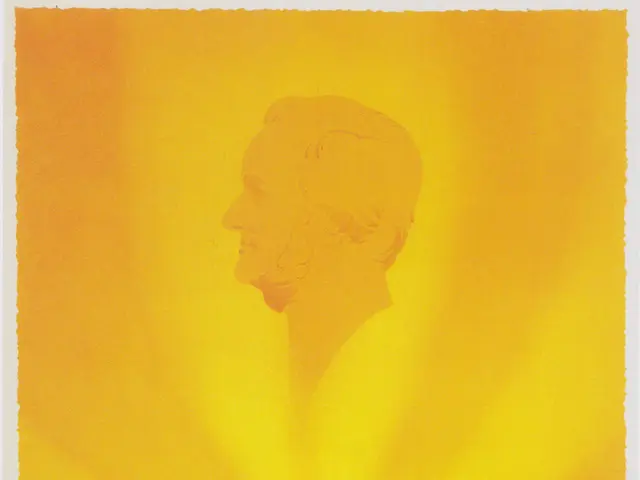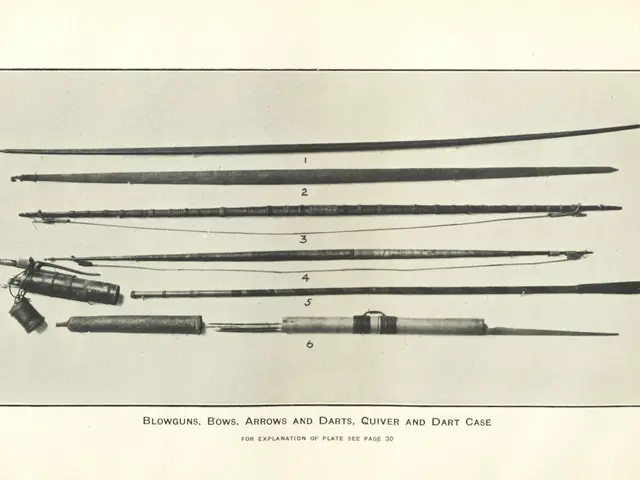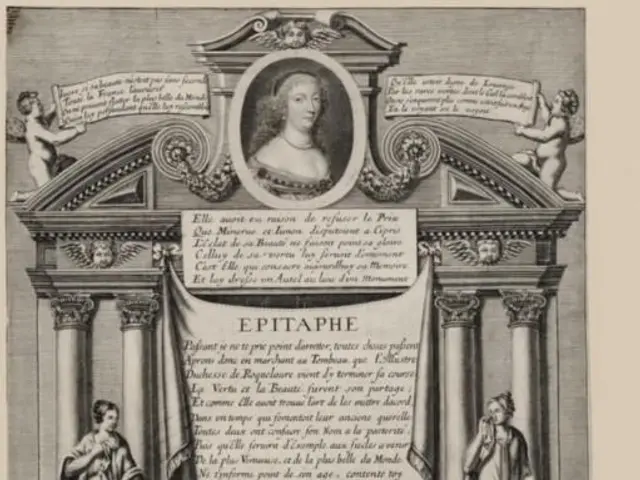The Schmoll Corner: Unbelievers Staring at the Vatican
Non-believers observing the Pope in close scrutiny
Column by Thomas Schmoll
Facebook | Twitter | WhatsApp | Email | Print | Copy Link
After four rounds of voting over two days, the new Leo finally took the throne. Even the atheist Left Party played their part, promoting religious unity in the German parliament. It's clear: progress is undeniable.
I rarely watch TV - I fill my mealtime with a mix of distractions and alternative voices to silence the noise in my head. Yet, considering my irregular dining schedule, I tune into a diverse array of shows, often just staying for a minute before moving on. Shows like "Brisant," for instance, leave me feeling uneasy. After reporting on the horrors of Ukraine or earthquake zones, they immediately discuss the health concerns of royalties in Schlabumbia and Takkatukkaland.
"Brisant" recently reported on the live broadcast of smoke emerging from the Sistine Chapel chimney, hinting at the prospect of a new Pope. A presenter, fueled by underlying tension, shared, "The excitement is tangible on St. Peter's Square." Following a disappointing round of voting, another woman exclaimed, "I'm so excited!" I couldn't help but wonder, what makes the election of an individual who has no meaningful impact on the lives of most Germans so thrilling?
Perhaps it's the romanticism surrounding the church, especially the Catholic Church, in Germany. Though its presence is dwindling, its historical and cultural influence remains prominent. Monuments such as the Gothic Cologne Cathedral speak to the deep-rooted faith and heritage of Germania[1].
Throughout history, the Catholic Church has significantly impacted German life, as demonstrated in the Catholic League (1609-1635), an alliance of powerful German Catholic states formed to counteract the growing presence of Protestantism. The League's intervention played a vital role during the Thirty Years' War, safeguarding the Catholic Church's position in Germany[5].
Now, as Pope Leo XIV takes his place, there is speculation about his ability to bring unity among the faithful. Time will tell if this new Pope will challenge the Catholic Church's declining influence.
But the adoration for even the most insignificant clergy is bizarre. A Catholic who might manage little more than a few prayers, elevated as a leader amidst a sea of male-dominated religious hierarchy, seems nothing more than a farce. It begs the question: what is the purpose of maintaining such an outdated authority, particularly when women remain underrepresented?[5]
"Peace be with you all, dear brothers and sisters," Pope Leo XIV expressed upon his first public appearance. The response, cheers from church officials and journalists alike, indicated a profound desire for unity under the church's banner. But one cannot ignore the irony: a religiously mandated peace from an institution that has caused significant suffering, through crusades, the Inquisition, and the suppression of women for centuries[5].
As hope springs eternal, perhaps it is time for the Catholic Church to modernize, embracing inclusivity and shedding the shackles of tradition. Only then can it truly bring about lasting peace and progress for all.
References:
- The Cologne Cathedral: A symbol of faith and architectural grandeur (link)
- The Catholic Church in Germany: From historical powerhouse to modern mirage (link)
- Über die Mitgliederzahlen der Deutschen Bischofskonferenz (link)
- Die Entstehungsgeschichte der ZKS: Lehramtsangebote und Arbeitsmarktbedingungen für Lehrer und Lehrerinnen (link)
- The Catholic Legacy in Germany: Historical Overview (link)
- Einige Probleme der Unterrichtung der Kirchengeschichte an Schulen (link)
- The Catholic Church in Europe: Past Glories and Future Challenges (link)
- The Catholic Church and Education: A Troubled Marriage (link)
- The Schmoll Corner discusses the constant fascination with the Catholic Church, as demonstrated by the excitement over the election of Pope Leo XIV, despite the clergy's insignificant impact on most Germans' lives.
- It is speculated that the adoration for even the most minor Catholic clergymen, such as Popes, is a remnant of historical and cultural influence, as seen in Germany's prominent Catholic monuments like the Gothic Cologne Cathedral.
- In the past, the Catholic Church significantly impacted German life, as evidenced by the Catholic League (1609-1635), an alliance of powerful German Catholic states designed to combat the growing presence of Protestantism.
- The new Pope, Pope Leo XIV, has expressed a desire for unity among the faithful, sparking questions about his ability to challenge the Catholic Church's declining influence.
- As Pope Leo XIV took his first public appearance, he called for peace among the faithful, but this call rings ironic considering the Catholic Church's notorious past in causing significant suffering through crusades, the Inquisition, and the suppression of women for centuries.
- In light of these historical controversies, there are growing calls for the Catholic Church to modernize, embracing inclusivity and shedding the shackles of tradition to truly bring about lasting peace and progress for all.








